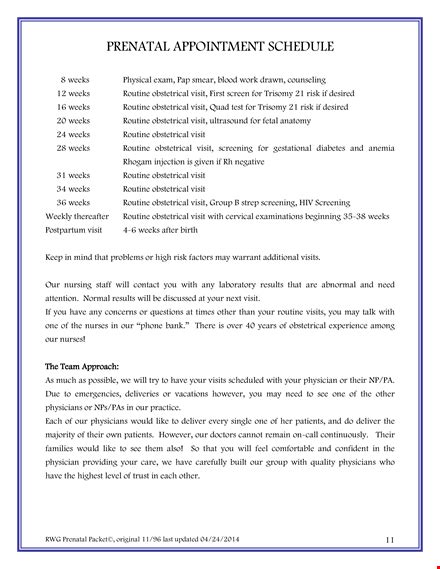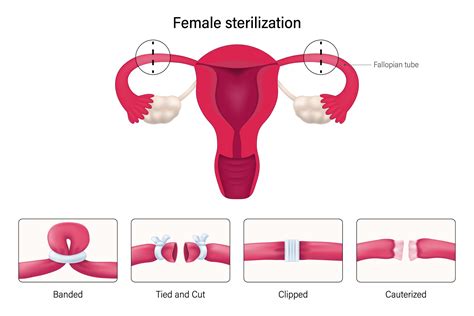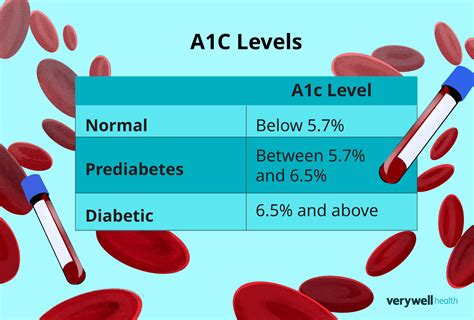Prenatal Check Up Schedule: Stay Healthy

Regular prenatal check-ups are crucial for ensuring the health and well-being of both the mother and the baby during pregnancy. These visits provide an opportunity for healthcare providers to monitor the progress of the pregnancy, detect any potential complications early, and offer guidance on maintaining a healthy lifestyle. Understanding the importance of prenatal care and following a recommended schedule can make a significant difference in the outcome of the pregnancy.
Importance of Prenatal Care
Prenatal care is not just about checking on the baby’s growth; it’s also about ensuring the mother’s health is optimal for pregnancy. Through regular check-ups, healthcare providers can identify and manage conditions that may affect pregnancy, such as hypertension or gestational diabetes. Moreover, these visits are a chance for expectant mothers to ask questions, address concerns, and learn about what to expect during the different stages of pregnancy and after childbirth.
Typical Prenatal Check-Up Schedule
The schedule for prenatal check-ups can vary depending on the individual’s health and the pregnancy’s progression. However, a general outline is as follows:
- First Trimester (Week 1-12): The first prenatal visit usually occurs around 6-8 weeks of pregnancy. After that, visits are typically scheduled every 4 weeks until the end of the first trimester. These early visits are critical for confirming the pregnancy, establishing the due date, and conducting initial screenings.
- Second Trimester (Week 13-26): During the second trimester, prenatal visits are usually scheduled every 4-6 weeks. This period is vital for monitoring the baby’s growth, conducting a detailed anatomy scan around 20 weeks, and performing screenings for gestational diabetes and other conditions.
- Third Trimester (Week 27-40): In the third trimester, the frequency of prenatal visits increases. From 28 to 36 weeks, visits are typically every 2-3 weeks, and from 36 weeks onwards, they are usually weekly. This closer monitoring is crucial for detecting any issues that may arise late in pregnancy and for preparing for childbirth.
Key Components of Prenatal Check-Ups
Each prenatal visit involves several key components, including:
- Physical Examination: This includes measuring blood pressure, weight, and abdominal girth to monitor pregnancy progression.
- Fetal Heart Rate Monitoring: Listening to the baby’s heartbeat to ensure it’s within a normal range.
- Urine Tests: Regular urine tests to check for signs of infection or conditions like proteinuria.
- Blood Tests: Various blood tests throughout pregnancy to check for anemia, blood type, and detect any infections.
- Ultrasound Scans: Scheduled ultrasounds to monitor the baby’s growth, position, and detect any abnormalities.
- Education and Counseling: Healthcare providers offer guidance on nutrition, exercise, and what to expect during the remainder of the pregnancy and postpartum.
Staying Healthy During Pregnancy
In addition to regular prenatal check-ups, maintaining a healthy lifestyle is paramount. This includes:
- Balanced Diet: Eating a diet rich in essential nutrients like folic acid, iron, and calcium.
- Regular Exercise: Engaging in pregnancy-safe physical activities to maintain physical and mental well-being.
- Adequate Rest: Getting enough sleep and taking rests when needed to manage fatigue.
- Stress Management: Finding healthy ways to cope with stress, such as through meditation or prenatal yoga.
Preparing for Prenatal Visits
To make the most out of prenatal visits, it’s helpful to be prepared. This can include:
- Keeping a Pregnancy Journal: Recording questions, symptoms, and concerns to discuss with the healthcare provider.
- Understanding Family Medical History: Knowing any relevant medical conditions that run in the family.
- Asking Questions: Don’t hesitate to ask about anything related to pregnancy, childbirth, or postpartum care.
Conclusion
Prenatal care is a critical component of a healthy pregnancy. By understanding the importance of regular check-ups and following a recommended prenatal schedule, expectant mothers can ensure they’re doing everything possible to have a healthy pregnancy and a positive birth experience. Remember, each pregnancy is unique, and staying informed and connected with healthcare providers throughout the journey is key to addressing individual needs and concerns.
How often should I schedule prenatal check-ups during my first trimester?
+Typically, prenatal visits during the first trimester are scheduled every 4 weeks after the initial visit around 6-8 weeks of pregnancy.
What can I expect during my prenatal check-ups in the third trimester?
+In the third trimester, visits become more frequent, usually every 2-3 weeks from 28 to 36 weeks, and then weekly from 36 weeks onwards. These visits are crucial for monitoring the baby’s position, preparing for childbirth, and detecting any late pregnancy complications.
How can I stay healthy during pregnancy?
+Maintaining a healthy lifestyle during pregnancy includes eating a balanced diet, engaging in regular and safe exercise, getting adequate rest, managing stress, and attending all scheduled prenatal check-ups.



